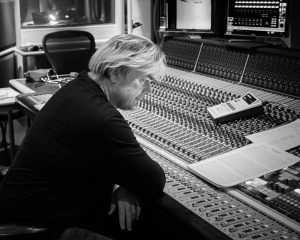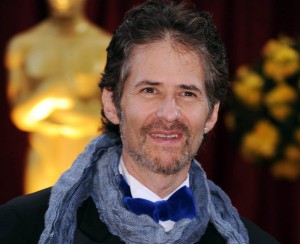For James Franglen, the challenge of creating a score for Antoine Fuqua’s remake of The Magnificent Seven must was a double challenge. The 53-year-old British composer was not only tasked with expanding the snippets of themes left by James Horner, whose untimely death last year was an industry tragedy, but he knew the work would have to hold it’s own against Elmer Bernstein’s music for the original 1960 film, one of the most iconic works of cinema music ever.
Franglen and Horner were longtime friends who occasionally collaborated, as on Titanic; Horner composed the score and theme song, Franglen played keyboards and co-produced the hit single “My Heart Will Go On,” earning the Grammy for Record of the Year. For 2009’s Avatar he handled arrangements for Horner’s score for Avatar, and he also wrote the music and lyrics and produced the film’s theme song, “I See You.”
Horner, who had just worked with Fuqua on the boxing drama Southpaw, was so keen to work on Seven that he’d begun roughing out themes, working from the Fuqua’s early script. He’d actually been discussing the project with Franglen, kicking ideas around.
The day after one of those conversations Franglen got the news that Horner perished when the single-engine Tucano turboprop plane he was piloting crashed near Santa Barbara. Franglen was devastated, but also motivated.
“It occurred to me these were his last themes, and it seemed wrong not to play them for Antoine, because James was a big reason Antoine took the film. Antoine was considering moving to another project, because he couldn’t get everything he needed. James was insistent that he do Mag Seven. He said ‘This is a cowboy film. This is something you should do.'”
Franglen conferred with the circle of friends on whom he and Horner often relied: Abbey Road’s Simon Rhodes, music editors Joe E. Rand and Jim Henrickson and orchestrator J.A.C. Redford. (It’s a touching insight into Horner that he lists all of his regular collaborators on his website, jameshorner-filmmusic.com, which includes a remembrance by Franglen.)
The group decided to make a suite of demos to play for Fuqua, “so at least he’d hear James’s ideas for how the film should sound,” Franglen told Collider’s Steve “Frosty” Weintraub (in the video interview embedded below). “So we hired an orchestra.” Franglen took the recordings to Louisiana, where Fuqua was shooting the film, and the two listened to the material, an experience Franglen describes as “very emotional.”
Franglen wound up creating 107 minutes of music for the 120-minute film. Horner’s themes “evolved,” but his DNA remains, and Franglen is proud of the results. He’s come a long way from the days of his youth as a synth programmer and his other life in pop (where his lengthy list of credits includes collaborations with Michael Jackson, Madonna, Linda Ronstadt, En Vogue and Toni Braxton). His work is also currently onscreen in Terence Malick’s documentary Voyage of Time: Life’s Journey.
You can hear him talking about his involvement on that project, as well as Mag Seven, in the clip — well worth watching.




Comments are closed.